
The Resilience Institute Bridging Biological Training and Research (RIBBiTR) is focused on understanding resilience to a key global threat that has the potential to affect all life: emerging infectious diseases. The Amphibian…

The Resilience Institute Bridging Biological Training and Research (RIBBiTR) is focused on understanding resilience to a key global threat that has the potential to affect all life: emerging infectious diseases. The Amphibian…
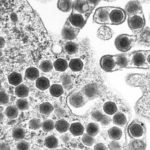
Professor Matt Gray was recently a guest on the Amphibicast podcast. Tune in to hear Dr. Gray discuss the importance of clean amphibian trade!
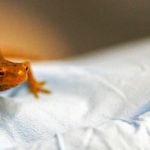
Master’s student and member of the Amphibian Disease Laboratory Adri Tompros has published a paper in Transboundary and Emerging Diseases.
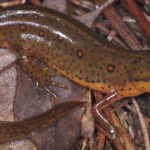
Professor Matt Gray recently spoke on the threat of Bsal at the virtual 86th North American Wildlife and Natural Resources Conference. View the full recording on YouTube or watch below.

Mark Wilber and colleagues from the Amphibian Disease Lab have published a new paper with the British Ecological Society on amphibian pathogen resistance and tolerance.
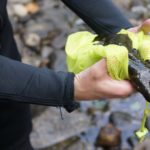
Dr. Patrick Cusaac and colleagues from the Amphibian Disease Laboratory have published a new paper in the Journal of Aquatic Animal Health. The research suggests that Eastern hellbenders that are…
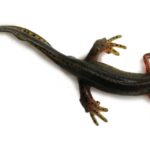
Eastern newt populations in the northeastern United States and southeastern Canada are at greatest risk of infection with a new skin-eating fungus, Batrachochytrium salamandrivorans (Bsal), according to a study published February 18 in the open-access journal PLOS Pathogens by Matthew Gray of the University of Tennessee Institute of Agriculture, and colleagues.
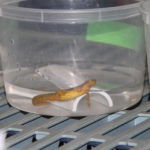
Professors Matt Gray and Deb Miller’s work in the Amphibian Disease Lab centers on preventing the spread of an amphibian pathogen, Bsal, to the United States. Bsal is currently spreading across Europe, and many fear that international pet trade will bring pathogen here. With the Appalachian region being a hotspot for salamander diversity, the Miller-Gray Lab is focused on prevention, detection, and transmission pathways for the pathogen.

New research finds that host density and habitat structure influence host contact rates and Batrachochytrium salamandrivorans transmission